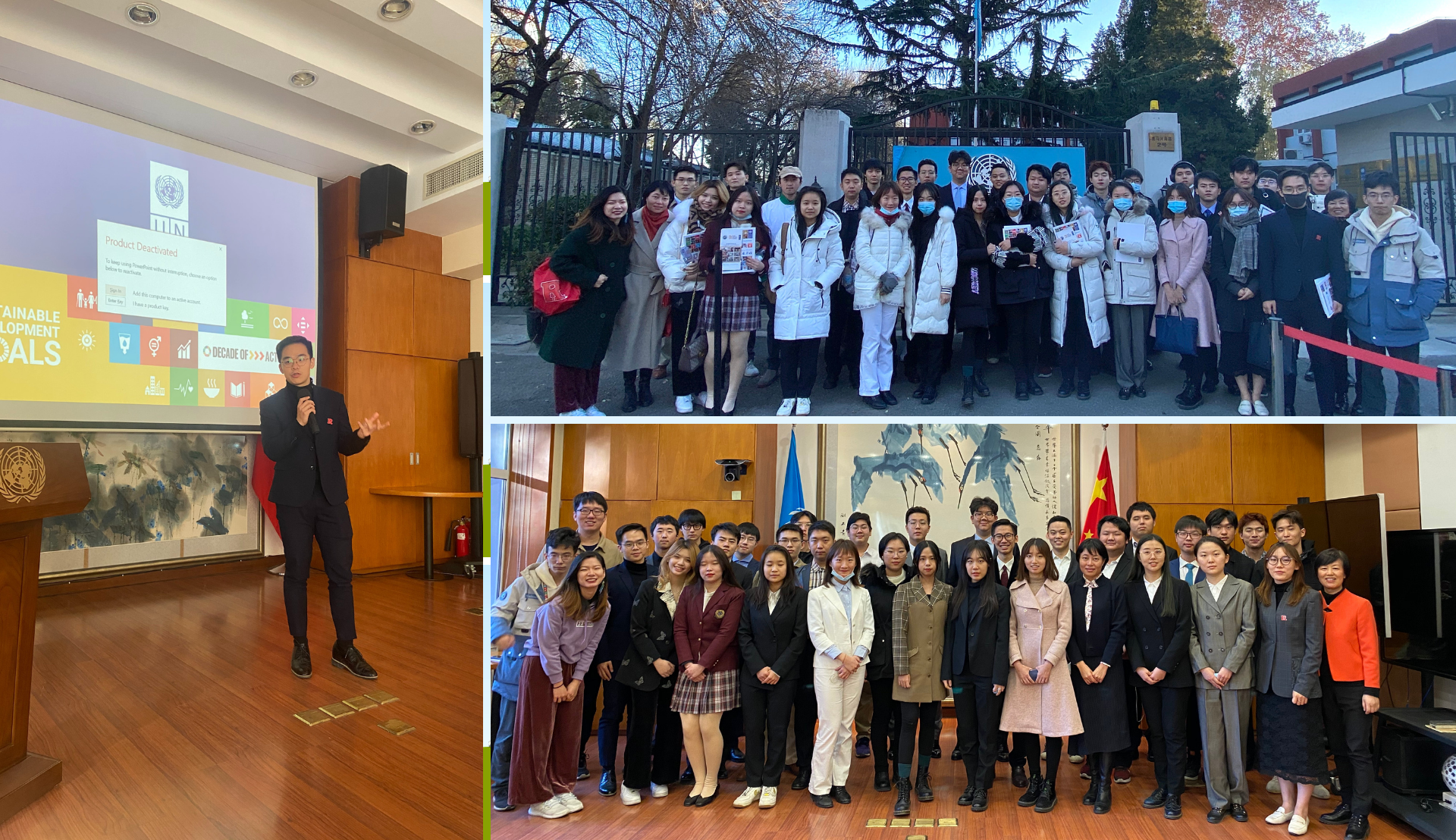On December 4th, thirty first-year students participating in the Rutgers Overseas Semester Experience (ROSE) program visited the China office of the United Nations Development Programme (UNDP) in Beijing. The UNDP, which serves as the UN’s development agency, works in 170 countries and territories, playing a critical role in helping countries achieve the Sustainable Development Goals. This visit was one of many co-curricular activities organized for ROSE students to gain more exposure to important global development initiatives.
Haoyang Li, a student who participated in the event, noted: “I have been dreaming of the opportunity to gain deep insight into how the UN works across different departments. The site visit not only enabled me to understand how the UNDP works in China to strive for a better world, but also helped make firm my dream to work for the UN.”
As part of the visit, the UNDP staff gave a presentation on the creation of the United Nations in the wake of World War II, as well as the genesis of the UNDP in China 40 years ago. In China, the UNDP has constantly shaped and adjusted its working models over the years, based on China’s Five-Year Development Plans and local development needs. Over the years, China has focused on providing agricultural and technical assistance to support some of the most remote communities in high plateau region through small grants of Global Environment Facility. Now, the UNDP is working closely with China to provide technical solutions and experiences with other countries via the South-South Cooperation, the Belt and Road Initiative, and Global Operation campaigns.
ROSE student Bowen Yao, reflected: “China is one of the 170+ countries where UNDP has projects, operations, and offices. After this site visit, I will now pay more respect to every professional working at UNDP for their silent dedication to the development of our world.”
Another aspect of the visit was an opportunity to discuss career goals and opportunities. Some UNDP staff members shared about their own career paths and experiences and illustrated the ways in which ROSE students can make their impact on the world. By choosing to work with an organization such as the UN and UNDP, students have an opportunity to enjoy a career with significant impact, by helping vulnerable populations and working toward equity and inclusion across the globe.
“This UNDP site visit is one of the co-curricular activities we have designed for our ROSE students,” said Grace Pei, ROSE Beijing Onsite Director. “We will continue to provide similar opportunities for ROSE students in Beijing to meet with leaders from different sectors, and, overall, to encourage them to explore some of the pressing local and global issues currently being discussed and defined in the new global order.”
Steven Henin, ROSE Program Director, added: “During normal times, our international students studying political science and other related disciplines in New Jersey would have the opportunity to visit the UN in New York.” He continued, “Through this opportunity, our ROSE students not only got to visit the UNDP regardless of their major or concentration, but more importantly, they were able to visit the site in their home country. This opportunity allows them to gain a greater insight into how the UN positively impacts the world and China specifically, and at the same time how China can positively impact the world.”
Lin Ma, a ROSE student, summed up the UNDP event well by noting: “As a global citizen, I believe that we should learn from the UNDP spirit and help those people in need across the world. I think we youth with a global perspective can help build a better world through our efforts.”
The ROSE program, spearheaded by Rutgers Global in the wake of the travel restrictions imposed by the Covid-19 global pandemic, provides the opportunity for Rutgers first-year undergraduate students from China to study at partner universities in China for the fall semester, receiving both in-person and remote instruction. The ROSE program is taking place at Peking University in Beijing, South China University of Technology in Guangzhou, and East China Normal University in Shanghai. Please visit this page for more information.

